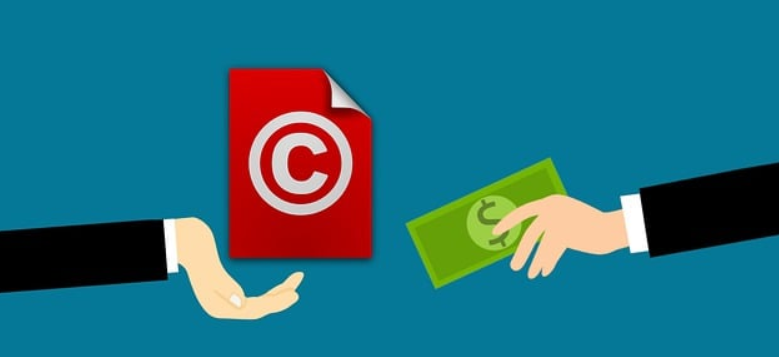In the ever-changing business-to-business (B2B) sales landscape, navigating the complexities and staying ahead of the curve is crucial for success. As we approach 2023, it becomes imperative to equip oneself with a comprehensive guide that covers the fundamentals and sheds light on the future of B2B sales.
Enter ‘The Ultimate Guide to B2B Sales and Marketing and The Future of B2B Sales in 2023.’ This invaluable resource offers a strategic roadmap for professionals seeking to thrive in this dynamic environment. By delving into key concepts such as aligning sales and marketing teams, crafting valuable content, and leveraging social selling techniques, this guide empowers individuals to adopt a proactive and buyer-centric approach.
Furthermore, it addresses common challenges B2B sales teams face while highlighting strategies to overcome them. With its focus on emerging trends like digital engagement and optimizing limited time with customers, this guide prepares sales professionals for what lies ahead.
Get ready to revolutionize your B2B sales strategy and confidently embrace the future!
Key Takeaways
- B2B sales have evolved and require a proactive approach to find potential customers and share relevant content with them.
- Modern B2B buyers are younger and tech-savvy, relying on digital technologies and online reviews to make purchasing decisions.
- Closing deals is becoming more challenging, with buyers conducting extensive research and making decisions before contacting suppliers.
- Sales and marketing teams need to align and utilize effective sales strategies, such as creating a content library and sharing case studies, to improve responsiveness from decision-makers.
Table of Contents
- Key Takeaways
- What is B2B Sales?
- Categories of B2B Selling
- Differences from B2C Sales
- B2B Sales Examples
Are you a founder struggling to close your first million in revenue? Darren, CEO of Rampd, has a proven framework that breaks down the sales process into manageable steps, giving you the confidence to guide prospects through a predictable buying journey.
His approach has helped numerous founders grow their revenue by 300% year over year. Don’t miss out on this opportunity to transform your sales process. Book a call with Darren today and start your journey towards your first million.
What is B2B Sales?
B2B sales refers to the process by which companies or salespeople sell products and services directly to other businesses. It involves complex decision-making processes, higher transaction values, and longer sales cycles than B2C sales.
In B2B sales, sales teams are crucial in identifying potential customers, building relationships, and closing deals. The B2B sales process involves various stages such as lead generation, prospecting, needs analysis, proposal development, negotiation, and closing.
Effective sales strategies are essential for success in B2B sales. This includes aligning the efforts of the sales and marketing teams to ensure consistent messaging and coordinated actions. Sales enablement tools can also be utilized to enhance productivity and effectiveness throughout the entire sales process.
By employing strategic approaches and collaboration between sales and marketing teams, companies can achieve their goals in the competitive world of B2B sales.
Categories of B2B Selling
The different selling categories in the business-to-business (B2B) context include producers, resellers, governments, and institutions. Sales reps play a crucial role in these categories by engaging with potential buyers and promoting their products or services. They are responsible for building relationships, understanding client needs, and closing deals.
Marketing teams support sales reps by creating targeted content and strategies to attract potential customers and generate leads. Collaboration between the sales team and marketing teams is essential for successful B2B selling.
Additionally, understanding the sales cycle is crucial in developing effective sales strategies tailored to each category. By identifying the specific needs and preferences of producers, resellers, governments, and institutions, sales reps can adapt their approaches accordingly to increase their chances of success.
Differences from B2C Sales
Distinguishing B2B sales from B2C (business to consumer) sales is essential in understanding the contrasting dynamics and strategies involved.
B2B sales focus on selling products and services to other businesses, whereas B2C sales involve selling directly to consumers.
The differences between these two types of sales can be summarized as follows:
- Target audience: B2B sales target businesses as customers, while B2C sales target individual consumers.
- Sales funnel: The B2B sales process typically involves a longer and more complex sales funnel than the shorter and simpler process in B2C sales.
- Decision-making process: In B2B sales, multiple stakeholders are involved in decision-making, whereas in B2C sales, the decision is usually made by an individual consumer.
- Marketing opportunities: B2B marketing focuses on targeting specific industries or companies, while B2C marketing is often more broad-based and aimed at reaching a wider consumer audience.
- Average transaction values: Typically, average transaction values are higher in B2B sales due to larger order quantities and longer-term contracts than individual purchases made in B2C transactions.
Understanding these distinctions allows for developing effective strategies tailored specifically for each type of sale.
B2B Sales Examples
Insurance sales reps, software executives, pharmaceutical salespeople, and sales professionals in various industries are all examples of individuals involved in B2B sales. These sales professionals drive business growth by identifying and nurturing potential clients, building relationships, and ultimately closing deals.
They are responsible for understanding their target market’s unique needs and challenges and providing tailored solutions to address them. B2B sales often involve longer sales cycles than B2C sales due to the complexity and higher stakes involved. Sales reps must be skilled at qualifying leads, managing multiple stakeholders, and navigating the decision-making process.
Their goal is to make a sale and establish long-term partnerships that benefit both parties involved.
Ready to take your business to the next level? Rampd’s unique approach to sales is not just about teaching and consulting; it’s about delivering tangible results tailored to your company. His clients have seen dramatic increases in revenue, with some even crossing the $1M mark.
If you’re ready to streamline your sales process and achieve predictable revenue, schedule a call with Darren, Rampd’s CEO. Let him help you establish Product-Market Fit and close your first million in revenue.
The Modern B2B Sales Process
One key factor that sets the modern B2B sales process apart from its predecessor is the shift in power dynamics, with buyers now having more control and autonomy in their purchasing decisions. This change has brought about several significant implications for sales performance and sales leaders.
-
- Salespeople must understand and address the pain points of their prospective buyers to effectively engage with them.
-
- Continuous sales training is crucial for evolving buyer behaviors and preferences.
-
- Sales targets must be aligned with the longer sales cycles characteristic of the modern B2B sales process.
-
- The use of data analytics and technology tools can provide valuable insights into buyer behavior, allowing for more personalized and targeted selling strategies.
By recognizing these changes in power dynamics, sales leaders can adapt their strategies and empower their teams to thrive in today’s B2B marketplace.
B2B Sales Strategies
In the world of B2B sales, having a robust strategy is the cornerstone of achieving sustainable success. Here are some tried-and-true strategies to consider:
-
Targeted Prospecting: Identifying and targeting high-value prospects that are more likely to convert is essential. Utilize data analytics to hone in on the right audience.
-
Value Selling: In B2B sales, it’s crucial to articulate the unique value your product or service brings to a potential client. Ensure your sales team is well-versed in communicating the benefits that cater to the specific needs of each prospect.
-
Educational Content: Offering insightful, educational content helps nurture leads and establish your brand as an authority in the market. Webinars, whitepapers, and case studies are some of the mediums you can employ.
-
CRM Utilization: A Customer Relationship Management (CRM) system helps track interactions with prospects and clients, ensuring timely and personalized follow-ups.
-
Customer Feedback: Collecting and acting on customer feedback can provide valuable insights into areas of improvement, which in turn can significantly impact sales.
These strategies will greatly increase your overall sales numbers and closing rates. Practice makes perfect. Keep practicing these strategies, get better at them, and increase your sales even more.
Trends in B2B Sales
The evolution of the B2B sales landscape has brought about significant trends shaping how businesses engage with their customers and drive revenue.
Lead Generation
One important trend is the focus on lead generation, as businesses recognize the need to identify and attract potential customers proactively. This involves leveraging various digital channels, such as social media and content marketing, to reach a wider audience and generate qualified leads.
Customer Satisfaction
Another trend is the emphasis on customer satisfaction throughout the sales process. B2B companies realize that building strong relationships and providing exceptional customer service are essential for long-term success. This includes personalized interactions, timely follow-ups, and addressing customer pain points effectively.
Sales Tools and Technology
Additionally, there is a growing reliance on sales tools and technology to streamline processes and enhance efficiency. From CRM systems to automation tools, businesses invest in solutions that enable better tracking of leads, improve customer communication, and optimize marketing efforts.
Current trends in B2B sales revolve around lead generation, customer satisfaction, and leveraging sales tools to maximize marketing efforts. These trends reflect the evolving nature of B2B sales and highlight the importance of adapting strategies to meet changing customer demands.
How to Create a B2B Sales Process
Creating a structured sales process is pivotal for a well-oiled sales machine. Here’s a step-by-step approach:
-
Lead Generation: Identify potential customers through various channels like online marketing, trade shows, and referrals.
-
Qualification: Qualify leads to ensure they have the potential to convert. Assess their needs, budget, and the decision-making process.
-
Presentation: Develop tailored presentations that address your prospects’ specific needs and concerns.
-
Negotiation: Engage in constructive negotiations aiming at win-win outcomes. It’s crucial to be prepared to handle objections and offer solutions.
-
Closure: Once an agreement is reached, ensure a smooth transition to the onboarding process. Clarify any uncertainties and set clear expectations.
-
Follow-up: Maintain an open line of communication even after the sale. Check on client satisfaction and seek referrals.
Importance of Sales and Marketing
Sales and marketing alignment plays a crucial role in the success of B2B businesses by ensuring a cohesive and coordinated approach to engaging with customers and driving revenue. It is essential for companies to align their sales and marketing strategies to effectively target prospective customers, build relationships, and ultimately increase customer loyalty.
By working together, inside sales and marketing teams can create targeted messaging and campaigns that resonate with their target customers, resulting in a more seamless selling process. This alignment allows for a better understanding of prospective customers’ needs and pain points, enabling salespeople to provide personalized solutions that meet their specific requirements.
Furthermore, a strong collaboration between sales and marketing facilitates relationship-building with customers throughout the entire buying journey, leading to increased customer satisfaction and long-term loyalty.
B2B Sales Tips
Here are some indispensable tips to help B2B salespeople excel in optimizing the B2B sales cycle and providing their B2B customers with what they need, for years to come:
-
Build Relationships: B2B sales often involve long-term relationships. Focus on building trust and understanding your client’s evolving needs.
-
Leverage Social Selling: Use platforms like LinkedIn to connect with potential clients and share valuable content highlighting your expertise.
-
Continuous Learning: The B2B landscape is ever-evolving. Keep abreast of industry trends, emerging technologies, and sales methodologies.
-
Ask for Referrals: Satisfied customers are your best advocates. Don’t hesitate to ask for referrals, which could open doors to new opportunities.
-
Utilize Technology: Embrace sales enablement tools that can streamline your processes, provide valuable insights, and ultimately drive better results.
With these tips
Maximizing Limited Time with Customers
Maximizing the limited time available for customer interactions requires a strategic approach that optimizes efficiency while delivering valuable and impactful engagements. To achieve this, a business-to-business sales rep and/or marketing teams can employ the following tactics to speed up the buying process:
-
- Prioritize target accounts: Identify potential customers who are most likely to make a buying decision and focus efforts on building relationships with them.
-
- Conduct thorough research: Gather relevant information about each prospect to personalize sales calls and tailor solutions to their specific needs.
-
- Streamline the sales call process: Prepare well-defined objectives, ask insightful questions, actively listen, and provide relevant information to guide prospects toward a buying decision.
-
- Use technology effectively: Utilize CRM systems, automation tools, and analytics to streamline processes, track customer interactions, and identify opportunities for improvement.
-
- Continuously align sales and marketing efforts: Regularly communicate and collaborate between departments to ensure consistent messaging throughout the buyer’s journey.
By implementing these strategies, B2B organizations can maximize their limited time with customers while increasing the likelihood of closing deals.
Digital Engagement
Digital engagement in B2B sales has become increasingly important as technology shapes how businesses interact and connect with their customers. Sales managers now leverage digital platforms to engage with potential buyers, conduct market research, and facilitate online transactions.
With the buyer journey becoming more complex, digital engagement allows sales teams to reach a wider audience and build relationships through various touchpoints. Social media platforms have become powerful tools for engaging with prospects, sharing relevant content, and nurturing leads. By leveraging social media channels, sales managers can establish thought leadership, showcase their products or services, and provide personalized solutions to potential customers.
Overall, digital engagement is crucial in modern B2B sales by enabling sales teams to effectively communicate and connect with buyers in an increasingly digital-driven marketplace.
Frequently Asked Questions
What are some effective sales strategies for B2B sales?
Effective sales strategies for B2B sales include scripting, solving pain points, partnering, personal branding, social media engagement, and planning and preparation. These strategies help build relationships, address customer needs, and align sales efforts with marketing to drive success.
How can B2B sales teams align sales and marketing efforts?
B2B sales teams can align sales and marketing efforts by fostering regular communication and coordination, creating shared goals and strategies, using data-driven insights to inform decision-making, and leveraging content marketing to engage and educate buyers throughout the sales process.
What are the key steps in creating a B2B sales process?
The key steps in creating a B2B sales process include conducting market research, determining the ideal buyer persona, mapping out the buyer’s journey, qualifying leads, meeting face-to-face with customers, closing the deal and facilitating the agreement, and tracking results for continuous improvement.
How can B2B sales teams measure their performance?
B2B sales teams can measure their performance through key metrics such as tracking sales productivity, lead generation and conversion rates, revenue growth, customer retention, and return on investment. These metrics provide insights into the effectiveness of sales strategies and help drive continuous improvement.
What are some key metrics for tracking B2B sales productivity?
Key metrics for tracking B2B sales productivity include sales revenue, conversion rates, average deal size, customer acquisition cost, sales cycle length, and customer lifetime value. These metrics help assess the efficiency and effectiveness of the sales process.
Conclusion
In conclusion, the ultimate guide to B2B sales and marketing and the future of B2B sales in 2023 provides a comprehensive overview of the changing landscape of B2B sales.
By aligning sales and marketing teams, creating valuable content, and leveraging social selling techniques, businesses can overcome the challenges B2B sales teams face.
Despite skepticism towards sales messages, implementing strategies outlined in this guide will allow professionals to build relationships and close deals successfully.
While some may argue that traditional sales approaches are still effective, embracing digital engagement and maximizing limited time with customers will evoke a sense of urgency for businesses to adapt to the evolving trends in B2B sales.
Rampd offers three ways to help you: Scale Up, Call Coaching, and Founder Consulting with Darren, Rampd’s CEO. Whether you’re looking to understand how to identify and fix holes in your process or you’re ready to start scaling up, Darren can provide the guidance you need. His consulting calls are about leveling up and being accountable.
If you’re ready to take your sales to the next level, book a call with Darren today. Let him teach you how to close your first million in revenue and establish PMF.



